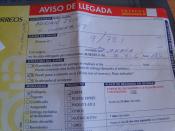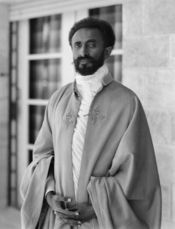Bob Marley's passport would tell you he was born April 6, 1945. His mother, Cedella Marley Booker, would tell you that to the best of her recollection, it was exactly two months prior. If you asked his Rastafarian brethren when he was born, adding that there seems to be no birth certificate for the man, they very likely would nod, and smile.
When Ras Tafari Mekonnen ascended to the throne, forever to be known as Emperor Haile Selassie I of Ethiopia, a prophecy was realized and he was seen as a manifestation of the Living God. Many Rastafarians believe Bob Marley inherited his legacy, and like Emperor Selassie, he was never born, and so can never die. To begin to understand Mr. Music, as Bob Marley is sometimes known, it would help to first discuss Jamaica, reggae, and the Rastafarian ideology. But first, in the tradition of linear learning, I will discuss the ancestors responsible for the surgence of Rastafarianism, the original 'rebel spirits' who fled their captors to live in the hills, the defiant seeds that would help grow an orchard of cultural pride and lively dance, the Maroons, and their respected and even feared equals, the Colanty.
1655. The British defeated the Spanish in a European war fought not in Europe, but on the Caribbean Island now known as Jamaica. Black slaves, most of them under the whip of the Spanish, fought grueling battles with the Dutch, Spanish, French, British and with each other in order to claim right to a place safe in the hills. After a time the defiant hill-people came to be referred to as maroons. Before the white Europeans had kidnapped black Africans to do their labor for them, there were Arawak Indians escaping to the hills at the realization of the insanity of...



Bob Marley
This was a very good paper. You don't really tell the reader where it will be going because the intro is a little weak but the body paragraphs are very informative. I've always been a Bob Marley fan, and because of him, I've always been interested in the Rastafarian religion but know almost nothing about it. I take a comparative religions class but we haven't even mentioned Rastafarianism. This essay offered me some insights into the religion, giving me new knowledge of it. It also related Bob Marley to the religion, which was an aspect I appreciated.
3 out of 3 people found this comment useful.